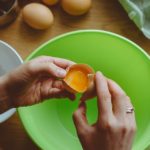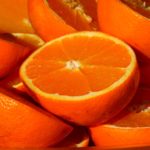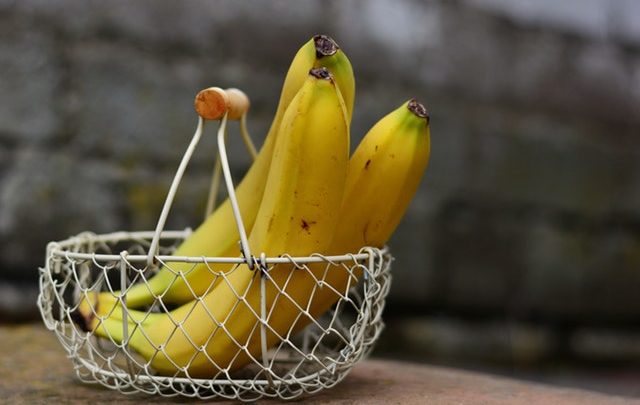Can Eating Certain Foods Help Improve Your Hearing?
Have you ever wondered if there are foods you can eat to help improve your hearing? Read on!
by Ali Marquess, Audiology Technician
Recent studies have shown the correlation of magnesium intake along with antioxidants may prevent hearing loss due to noise exposure and even genetics. At the University of Michigan Kresge Hearing Research Center, two studies focused on just this. A drug cocktail of Vitamins A, C, and E mixed with magnesium, slowed down hereditary deafness in mice with a specific genetic mutation (connexin 26 gene deletion) that is known to cause genetic hearing loss in humans. A very similar cocktail was given to guinea pigs prior to noise exposure and they found the combination of the four micronutrients blocked about 80 percent of the noise-induced hearing impairment. This has since been brought to human trials on military bases in Spain and Sweden. Specifically given to a military population because statistics show that one-third of returning soldiers fighting in Afghanistan and Iraq cannot be redeployed specifically because of hearing impairment, likely caused by noise exposure. These studies are still ongoing in human populations.
As for right now, Audiologists, researchers, and other medical professionals suggest eating a well-balanced diet with Vitamins, minerals and antioxidants specifically in mind to keep your hearing and overall health in good standing.
 Vitamin A is a fat-soluble vitamin that is important for normal vision, immune system, proper organ function and reproduction. There is a lot of research showing a link between lack of Vitamin A and hearing loss, and a correlation between high levels of Vitamin A and better hearing.
Vitamin A is a fat-soluble vitamin that is important for normal vision, immune system, proper organ function and reproduction. There is a lot of research showing a link between lack of Vitamin A and hearing loss, and a correlation between high levels of Vitamin A and better hearing.
Foods: Beef liver, carrots, sweet potatoes, kale, spinach, apricots, broccoli, butter, eggs and squash.
Click here for a list of correlation.
Vitamin B-12 keeps the nerve and blood cells healthy, and also assist in making DNA. B-12 deficient people are more at risk for tinnitus (ringing in the ears), noise-induced hearing loss, and possibly presbycusis (age-related hearing loss) especially combined with low folate levels.
Foods: meat, poultry, dairy. Beef liver, salmon, sardines and clams are specifically high in B12. Animal products are the only source to get B12 naturally. If you are vegetarian/vegan, try a supplement.

Vitamin C is an antioxidant found in most fruits and vegetables. It is helpful in providing a strong immune system, fighting off infections (like those of the middle ear) and preventing damage to the hair cells within the cochlea (inner ear).
Foods: oranges, strawberries, pineapple, mango, Brussels sprouts, bell peppers, kiwi, and broccoli.
Vitamin D is primarily responsible for bone health. A vitamin D deficiency can cause osteopenia (bone loss) and otosclerosis (abnormal bone growth/calcification) in the bones of the middle ear, which can lead to hearing loss and deafness.
Foods: fatty fish like tuna, mackerel and salmon, dairy products, fortified foods, beef liver, cheese, and egg yolks.

Vitamin E has antioxidant properties and improves circulation. This is said to be beneficial for the hair cells in the inner ear (cochlea). Also- your entire body!
Foods: Almonds, spinach, sweet potato, avocado, wheat germ, sunflower seeds
Magnesium regulates muscle and nerve function, blood sugar levels, and blood pressure. It also makes protein, bone and DNA. Magnesium also regulates glutamate, which is a neurotransmitter produced in the inner ear/hair cells. Those who are magnesium are more likely to develop tinnitus.
Foods: Dark chocolate, nuts, avocados, tofu, seeds, whole grains and some fatty fish.
 Potassium is an electrolyte that conducts electricity in the body in conjunction with sodium, chloride, calcium and magnesium. Potassium is one of the fluids present in the inner ear. Regulating this electrolyte can help keep potassium levels high in the inner ear, which tends to drop off with age. This is one of the leading causes in presbycusis (Age related hearing loss)
Potassium is an electrolyte that conducts electricity in the body in conjunction with sodium, chloride, calcium and magnesium. Potassium is one of the fluids present in the inner ear. Regulating this electrolyte can help keep potassium levels high in the inner ear, which tends to drop off with age. This is one of the leading causes in presbycusis (Age related hearing loss)
Foods: potatoes, spinach, lima beans, tomatoes, raisins, apricots, bananas, melons, oranges, yogurt and low-fat milk.
- Sources:
- Bill Sardithe Vitamin Supplement Answer Man.” Knowledge of Health RSS, knowledgeofhealth.com/lack-of-vitamin-a-may-be-overlooked-root-of-tinnitus-and-hearing-loss/.
- “Can Vitamins and Minerals Prevent Hearing Loss?” Can Vitamins and Minerals Prevent Hearing Loss? | Michigan Medicine, 10 Nov. 2008, www.uofmhealth.org/news/824vitamins-and-minerals-prevent-hearing-loss.
-
- Windsor, Amie. “Foods That Boost Hearing Health: The Power of Vitamins.” Healthy Hearing, 14 Mar. 2016,
www.healthyhearing.com/report/51182-Foods-that-boost-hearing-health-the-power-of-vitamins.
